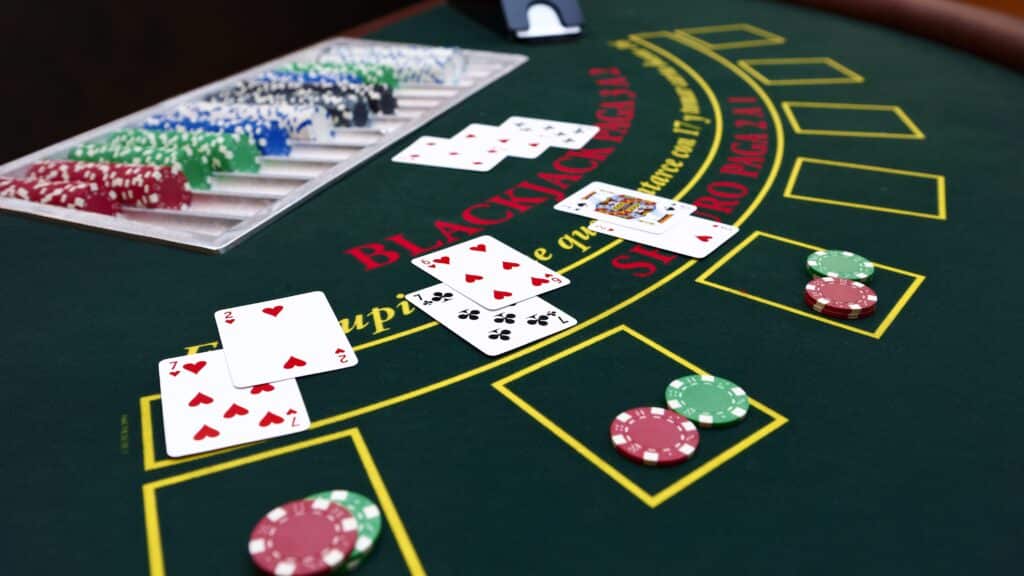Navigating the thrilling world of high-stakes games requires a delicate balance between the potential for substantial rewards and the inherent risks involved, a concept crucial for both new and seasoned gamblers to understand.
Understanding the High-Stakes Arena
The allure of high-stakes games, whether in casinos or online platforms, lies in the promise of significant payouts, offering an adrenaline-fueled experience unlike any other form of entertainment. These games, characterized by large wagers and potentially life-changing outcomes, attract individuals seeking not just entertainment, but also the thrill of high-risk, high-reward scenarios. For the uninitiated, it's essential to first grasp what constitutes a "high-stakes game."
Generally, a high-stakes game is defined less by the specific game itself and more by the size of the bets placed in relation to the gambler's bankroll and risk tolerance. What might be considered high stakes for a recreational gambler could be just another day at the office for a professional player. The defining factor is the potential for significant financial gain or loss in a relatively short period. This could range from high-limit blackjack tables in a physical casino to online poker tournaments with substantial entry fees and prize pools.
The psychology behind engaging in high-stakes gambling is complex. For some, it's about the intellectual challenge, the strategy, and the skill involved in games like poker or blackjack. For others, it's the excitement of the gamble itself, the rush of adrenaline that comes with placing a large bet and waiting to see the outcome. Understanding your personal motivations is the first step in approaching high-stakes games responsibly.
Assessing and Managing Risk
Risk assessment is paramount in high-stakes games. It's not merely about understanding the odds of winning or losing a particular hand or spin; it's about evaluating the broader implications of those outcomes on your financial and emotional well-being. New gamblers often underestimate the speed at which losses can accumulate in high-stakes environments.
Experienced gamblers, while more comfortable with risk, still employ rigorous risk management strategies. These strategies often include setting strict bankroll limits, determining acceptable loss thresholds, and diversifying their gameplay across different sessions or games to mitigate the impact of variance. Bankroll management is not just about limiting losses; it's about ensuring longevity in the game, allowing for statistical probabilities to play out over time.
One key aspect of risk management is understanding the concept of Expected Value (EV). In games with a skill component like poker or blackjack, skilled players aim to make decisions that maximize their EV over the long run. This means consistently making mathematically sound choices, even if they result in short-term losses. However, even with positive EV decisions, variance—the natural fluctuations in outcomes—can lead to losing streaks. Therefore, a robust risk management plan must account for variance and potential downswings.
Another critical element is emotional control. High-stakes games can evoke strong emotions, from euphoria during winning streaks to despair after significant losses. Emotional decision-making is a gambler's worst enemy. Strategies to maintain emotional equilibrium include taking breaks, sticking to pre-set betting limits regardless of emotional state, and recognizing when to walk away, win or lose.
Maximizing Potential Rewards
While risk management is about mitigating the downside, maximizing rewards is about strategically increasing your potential for profit in high-stakes games. This involves a multifaceted approach that includes game selection, skill development, and leveraging opportunities.
Game selection is crucial. Not all high-stakes games offer the same reward potential or risk profile. For instance, in poker, selecting games with weaker opponents ('table selection') is a well-known strategy to improve win rates. Similarly, in casino games, understanding the house edge and choosing games with lower edges (like blackjack or certain video poker variations compared to slot machines) can significantly impact long-term profitability.
Skill development is an ongoing process for any serious gambler. In games like poker and blackjack, skill is a major determinant of long-term success. This involves continuous learning of game theory, strategy refinement, and adapting to different game dynamics and opponent styles. Resources for skill development are abundant, ranging from online courses and strategy guides to coaching and simulation software.
Beyond game-specific skills, broader strategic thinking is essential. This includes understanding game theory concepts, probability, and statistical analysis. For example, knowing the odds of hitting a particular hand in poker or the probability of different outcomes in roulette allows for more informed betting decisions. Furthermore, understanding game variations and rule nuances can uncover hidden edges or opportunities.
Exploiting bonuses and promotions offered by casinos and online platforms can also boost potential rewards. However, it's crucial to understand the terms and conditions associated with these offers, including wagering requirements and game restrictions, to ensure they genuinely add value and are not just marketing ploys.
Psychological Aspects of High-Stakes Gambling
The psychological dimension of high-stakes gambling is as significant as the financial and strategic aspects. Understanding your psychological profile as a gambler—your motivations, risk tolerance, emotional responses, and cognitive biases—is crucial for responsible and potentially successful engagement.
One common psychological pitfall is the 'gambler's fallacy,' the mistaken belief that past outcomes influence future independent events (e.g., believing that after a series of losses, a win is 'due'). This fallacy can lead to irrational betting decisions, especially in high-stakes situations where the pressure to recover losses is intense. Understanding and internalizing the true nature of randomness is vital.
Another psychological challenge is managing cognitive biases, systematic patterns of deviation from norm or rationality in judgment. Confirmation bias, for example, might lead a gambler to selectively remember wins and downplay losses, creating an illusion of greater skill or luck than is actually present. Awareness of these biases and actively seeking objective feedback or data analysis can help counteract their negative influence.
The emotional rollercoaster of high-stakes gambling can be particularly taxing. The highs of winning can be addictive, while the lows of losing can trigger feelings of anxiety, regret, or even desperation. Developing emotional resilience and maintaining a balanced perspective, viewing gambling as entertainment or a strategic pursuit rather than an emotional crutch, is crucial for long-term well-being.
Recognizing the signs of problem gambling is also a critical psychological aspect. This includes chasing losses, gambling beyond one's means, neglecting responsibilities due to gambling, and experiencing distress or anxiety related to gambling. Early recognition and seeking help if needed are signs of responsible gambling behavior.
Strategies for Balancing Risk and Reward
Effectively balancing risk and reward in high-stakes games is not about eliminating risk—that's inherent to the nature of gambling—but about making informed, strategic decisions to optimize the risk-reward ratio. This involves a combination of practical strategies and mental discipline.
Setting clear financial limits is the cornerstone of responsible high-stakes gambling. This includes defining a gambling bankroll—money specifically allocated for gambling that you can afford to lose without impacting essential living expenses. Within this bankroll, setting session limits (both win and loss limits) helps to prevent impulsive decisions and protect against significant losses in a single session.
Employing sound betting strategies is also crucial. This varies depending on the game, but generally involves understanding optimal bet sizing in relation to your bankroll and the game's variance. For example, in poker, 'pot control' and varying bet sizes based on hand strength and opponent tendencies are key strategic elements. In casino games, understanding betting systems and their limitations is important—no betting system can overcome a negative house edge in the long run, but smart bet sizing can manage variance in the short term.
Information and analysis are powerful tools. In games like poker and sports betting, studying game statistics, opponent tendencies, and historical data can provide a significant edge. Utilizing tools like poker tracking software or sports analytics platforms can enhance decision-making and improve overall strategy.
Regularly reviewing and adjusting your approach is essential. Gambling is not static; game conditions, opponent styles, and even personal circumstances can change. Periodic self-assessment of your gambling performance, risk tolerance, and emotional state allows for necessary adjustments to strategy and risk management practices.
Choosing the Right High-Stakes Games
The landscape of high-stakes games is diverse, offering a range of options from traditional casino games to online poker and sports betting. Choosing the right games that align with your skills, risk appetite, and reward expectations is a strategic decision in itself.
Casino table games like blackjack, baccarat, and roulette are classic high-stakes options. Blackjack, in particular, offers relatively favorable odds for skilled players who employ basic strategy, and even card counting in live casino environments (though this is heavily scrutinized). Baccarat is simpler and relies more on luck, but with relatively low house edges on certain bets. Roulette is purely a game of chance, but high-stakes roulette tables attract players seeking large, immediate payouts.
Poker, especially No-Limit Hold'em and Pot-Limit Omaha, is a dominant force in the high-stakes arena. Poker is unique in that players compete against each other, not the house, and skill plays a significant role. High-stakes poker games can range from cash games to tournaments, both online and live, with massive prize pools and intense competition.
Sports betting has also emerged as a major high-stakes gambling avenue. With the proliferation of online sportsbooks, high rollers can place substantial bets on a wide array of sporting events globally. Successful sports betting requires in-depth knowledge of sports, statistical analysis, and handicapping skills.
Emerging forms of high-stakes games include esports betting and cryptocurrency gambling platforms. Esports betting is rapidly growing, attracting a younger demographic and offering bets on competitive video gaming events. Cryptocurrency casinos offer high-stakes games with the added element of cryptocurrency volatility and often faster transaction times and higher betting limits.
When selecting a high-stakes game, consider your skill level in each game type, your risk tolerance for the inherent variance, and the potential reward structure. Games with higher skill components, like poker and blackjack, offer more control over outcomes in the long run, while games of pure chance, like roulette, are inherently more volatile but can offer larger single-event payouts.
Long-Term Perspective and Sustainability
For those who engage in high-stakes games, adopting a long-term perspective is crucial for sustainability, both financially and personally. Treating gambling as a marathon, not a sprint, is a mindset that promotes responsible and strategic play.
Long-term success in skill-based games like poker is built on consistent, marginal gains over time. It's about making +EV decisions repeatedly, knowing that variance will cause short-term fluctuations. Bankroll management becomes even more critical in this long-term view, ensuring sufficient capital to weather downswings and capitalize on opportunities over extended periods.
In games of chance, where skill plays a lesser role, a long-term perspective means accepting the inherent house edge and viewing gambling purely as entertainment with a cost. Managing expectations, understanding that losses are statistically inevitable in the long run, and setting entertainment budgets accordingly are key aspects of sustainable play.
Beyond financial sustainability, personal well-being is paramount. High-stakes gambling can be mentally and emotionally demanding. Maintaining a healthy lifestyle, including regular exercise, sufficient sleep, and a balanced social life, helps to mitigate stress and maintain perspective. Regular self-reflection on gambling habits and their impact on overall life quality is also essential.
Ultimately, the balance between risk and reward in high-stakes games is a personal equation. It depends on individual risk tolerance, financial capacity, skill level, and psychological makeup. Approaching these games with knowledge, strategy, discipline, and a realistic understanding of both the potential highs and lows is the path to responsible and potentially rewarding engagement.
Conclusion: The Art of the Gamble
Mastering the art of balancing risk and reward in high-stakes games is an ongoing journey, a dynamic interplay between strategy, psychology, and chance, demanding continuous learning and adaptation for anyone venturing into this exhilarating arena.
For new gamblers, the initial allure of high-stakes games should be tempered with a healthy dose of caution and education. Understanding the fundamentals of risk management, starting with smaller stakes to gain experience, and recognizing the psychological factors at play are crucial first steps. Education is not just about game rules; it's about understanding yourself as a gambler and developing responsible habits from the outset.
Experienced gamblers must continually refine their strategies, manage their bankrolls rigorously, and remain vigilant against complacency and emotional decision-making. The higher the stakes, the greater the scrutiny required of one's own gameplay and mental state. The pursuit of mastery in high-stakes games is as much about self-mastery as it is about game expertise.
The future of high-stakes gambling is likely to be shaped by technological advancements, regulatory changes, and evolving societal attitudes towards gambling. The rise of online platforms, mobile gambling, and new game formats will continue to expand access and opportunities, but also necessitate greater emphasis on responsible gambling measures and player protection. Staying informed about these trends and adapting accordingly will be essential for navigating the high-stakes landscape in the years to come.
In conclusion, the allure of high-stakes games is undeniable, offering the potential for significant rewards alongside considerable risks. The key to navigating this world successfully lies in a balanced approach: understanding and managing risks effectively, strategically maximizing potential rewards, and maintaining a responsible and sustainable long-term perspective. It's a game of skill, chance, and, most importantly, informed decisions.
External Resources:



